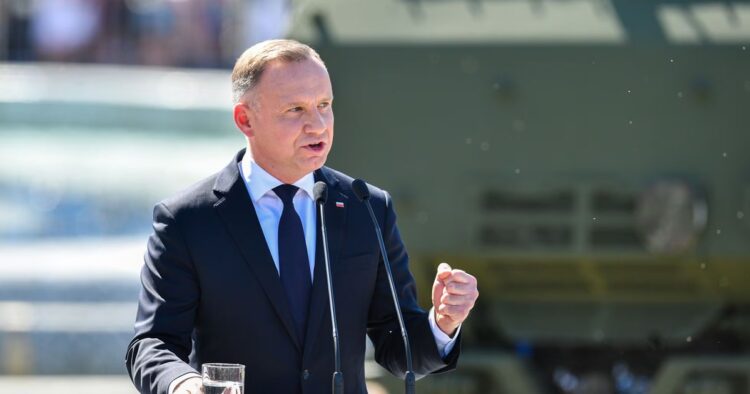In an interview, Poland President Andrzej Duda expressed the country’s readiness to host nuclear weapons belonging to other NATO members. This announcement comes as a response to reports of Russia relocating its nuclear arsenal to neighboring Belarus, as indicated by Belarus President Alexander Lukashenko in December.
Duda emphasized that Poland is fully aware of its obligations within the NATO alliance, which consists of 32 member countries, including the United States.
According to Duda, if NATO allies decide to deploy nuclear weapons on Polish territory to strengthen the security of NATO’s eastern flank, Poland is prepared to accommodate them.
Prime Minister Donald Tusk, echoing Duda’s sentiments on national security, expressed the need for urgent discussions regarding this proposal.
Tusk emphasized the importance of thorough preparation and ensuring unanimous support before proceeding with such a significant initiative. He stated the idea as massive and serious, underscoring the necessity of understanding the circumstances behind Duda’s declaration.
President Duda’s openness to nuclear sharing within NATO predates Tusk’s government, which assumed power in December. However, Tusk’s reserved response indicates the need for careful consideration and deliberation before making any decisions regarding nuclear deployment on Polish soil.
Responding to Poland’s openness to hosting NATO nuclear weapons, the Kremlin spokesperson in Moscow issued a warning, stating that any such deployment would be met with measures necessary to ensure Russia’s security.
Dmitry Peskov emphasized that the Russian military would analyze the situation and take all necessary retaliatory steps to guarantee the country’s safety.
In current situation, three NATO members possess nuclear capabilities: the United States, the United Kingdom, and France. Under NATO’s nuclear sharing program, the US maintains nuclear facilities in allied countries such as Belgium, Germany, Italy, the Netherlands, and Turkey for deployment and storage. However, Washington retains absolute control and custody over these weapons.
Moreover, seven NATO members possess dual-capability aircraft capable of carrying both conventional bombs and nuclear warheads, which can be utilized in the event of a nuclear strike.
Poland’s willingness to host NATO nuclear weapons underscores its commitment to regional security, particularly amidst ongoing tensions with neighboring Ukraine, which is facing Russia’s full-scale invasion in its third year.

















Comments